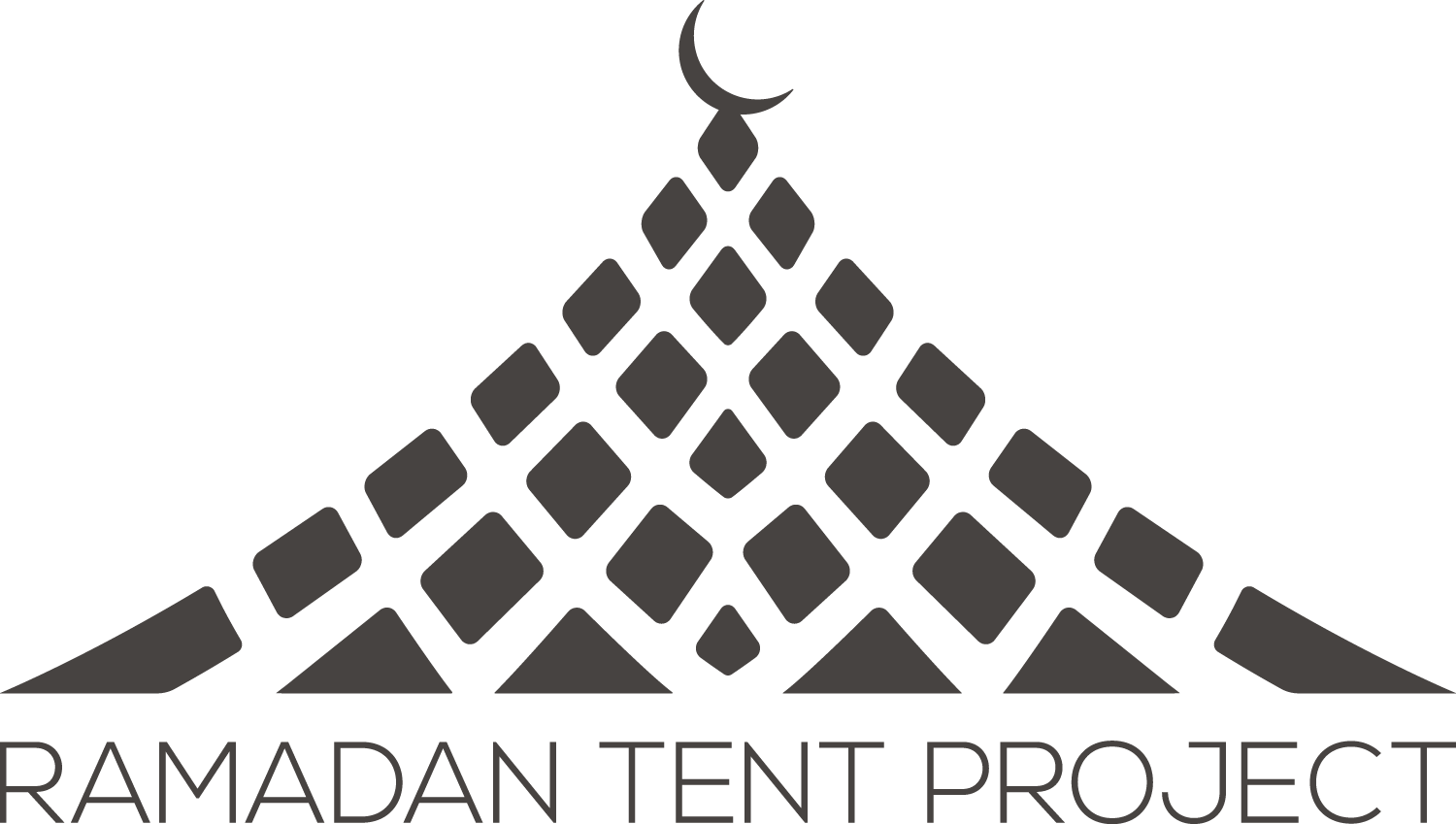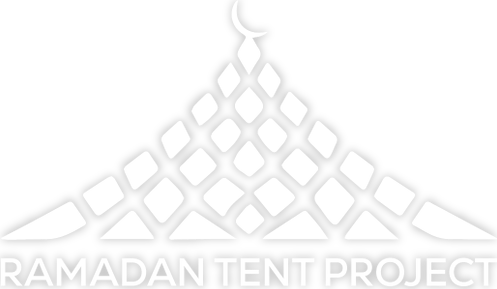Anonymous
This post is a reflection on a beautiful halaqa given by Ustadh Saquab and a personal reflection on my first experience of volunteering at the RTP. Ustadh Saquab related to us the account of Moses’ journey in Surah Al-Kahf, a chapter relevant to youth, culture and social change. We were asked to reflect upon our work, our studies and our deeds. Reminded not to lose sight of what our intentions were when we began, nor our end goal. To have mercy upon ourselves and upon others for the shortcomings and problems we encounter in the process of anything we sincerely commit ourselves to.
I was asked to be on the greeting team. Already exhausted from laying prayer mats and water, smiling and greeting guests was more tiring than I anticipated, but welcoming the faces of so many people from all walks of life who walked through the gates, and the kindness of the volunteers I was working with, made it easy. It still makes me smile when I think of the elderly Afghan man who stopped and looked at us in contemplation, before breaking into a smile and patting us on the head exclaiming, ‘Mashallah! Mashallah!’ It made me miss my grandparents terribly but warmed my heart. When the time came to pray, I had very little energy left, but felt at peace in the calm atmosphere of the park at dusk. The woman who had prayed beside me, at her own pace, from a chair, reminded me that in prayer, no one asks why you are so slow, nor draws attentions to ill health. We do what we can to make prayer easy for one other, to create a safe environment conducive to healing. In that moment we are alone with God. There is no shame in struggling in prayer. There should be no shame in struggling in our other religious obligations either. Nor in our day to day lives.
“Bulimia is a secret that rots your teeth and bursts the blood vessels in your eyes. I knew the consequences, I was already experiencing the enamel of my teeth abandoning me, my periods disappearing, my body just hurting all the time. I learnt how to lie with a beautiful skill. How to hide the bleeding gums, the bloody nose, the bloating of face. I did nothing else, but gently manipulate everyone that cared about me. Essentially, if our secrets are secrets because we are told to be ashamed, then we must share them. There is no shame in being sad or struggling or trying to heal.” –Warsan Shire, Kenyan-born Somali-British Writer
I have always felt great selfishness and guilt for my behaviour in a blessed month that is about being mindful of the suffering of those who do not have access to enough food. We all are obligated to support the needy through zakat and sadaqah, but we are obligated according to our means; financial, physical, psychological. God does not ask of us any more than what we are able (Al-Qur’an, 2:286). It is not permissible to fast when you are unwell, when it will bring harm to your body. The purpose of fasting is to heal, not hurt us, which is why these exemptions exist. It is a time to refrain from the excesses that hurt our physical and spiritual health. The essence of serving God is simplicity and sincerity. Certainly someone suffering from an eating disorder is not obligated to fast and physicians discourage it, but this does not mean that fasting, the act of learning to be mindful of what we consume, not only in our bodies but also in our intellect, the act of learning to do things in moderation, to be grateful for each drop of water and grain of food, to control and discipline all of our disordered thoughts, whether for us this means taking time to think about benign obsessions with social media, to facing more serious and harmful obsessions.
The attitude towards Islam in society means that while mindfulness and yoga are always recommended, there is no understanding that salah also contains these gentle, therapeutic mental, physical and spiritual exercises that provide grounding moments of respite from stress. Salah has a multitude of physical and psychological benefits which we should focus on, instead of binarising the discussion only ‘either/or’ in terms of ‘spiritual’ or ‘medical’ models of healing. Non-Muslim healthcare providers often assume that all Muslim practices are inherently rigid, coercive and harmful, though this is far from being the case. Psychologists and psychotherapists have only in recent years begun to base their treatments on ‘mindfulness’, a practice articulated clearly in Al-Kahf, which speaks directly to the youth, encouraging us to practice mindfulness, that is to correct and refine our disordered thoughts, to not be ignorant to the sufferings and persecution of others. For us this means remaining committed to partaking in their suffering, by doing what we are able, to alleviate it.
My faith makes me painfully aware of all I am wasteful of, and this awareness aided my health, when I understood that faith is the purification of our morality, the refinement of our intentions; that ultimately our beauty is realised in our character and actions. The holy month reminds me that when I stop fasting, there are others that do not, for they cannot. When I stop being thirsty, others do not, they cannot. When I stop being patient, others do not, they cannot. When I stop craving for food, others do not, they cannot. Our faith is a beautiful one in which we are taught to remain committed to having empathy for the suffering of others, but this empathy does not preclude care for ourselves or each other. Please, if you are struggling, I urge you to reach out, to talk to someone. We have been given lives to care for, we each are blessed with things that only we are able to do, but we have to be here, be well and alive to do this work.
How many times we hear that the depressed ‘could have become so much more, could have contributed so much more, had they not chosen a life of depression, self-pity and victimisation’. No one chooses a life of pain, the inability to walk for days after any amount of physical exertion – I cried in hospital when tests revealed the damage to my muscles and bones, previously so softened from malnutrition they would fracture even from gentle walking. No one truly chooses ECGs for a weak heart at such a young age, or their mothers’ tears through restless nights of hospitalisation. It was only when I began volunteer work in my teenage years that I met others who had struggled with this illness. Our afflictions are not always visible. We are often those with the brightest smiles, who spend our days trying to lift others, never asking for any help.
How often we repeat phrases like ‘this dunya is meant to break us’, ignorant to the fact that so many of our sisters have not been able to bear the weight of this world – I wonder if it would have helped them to speak about it; to hear, and feel, that they weren’t alone. In these final days, as we ask God to forgive us for all we did not or could not do, all the time we wasted on fleeting things — whatever our guilt is about, may we remember to forgive and have mercy on ourselves for our shortcomings too. For in essence this month is to teach us consciousness of our intentions, purifying them, and in turn, our faith. I sincerely pray for the peace and happiness of all those who knowingly and unknowingly have helped and supported me in being able to observe Ramadan this year, including the beautiful RTP team whose cultivation of community spirit and hard work inspired me so much; may God continue to bless them in their efforts.
“May you heal during this Ramadan. Indulge in self-reflection, in bettering yourself and your relationship with God, in self-control, in empathy, in patience. Allow the holy month to refresh your soul and cleanse your routine.” –Noor Shirazie, Pakistan-born Iranian-Australian Writer
References & Support:
Our War Against Eating Disorders in Pakistan
Ramadan and Eating Disorders in Turkey
The Risk of Eating Disorders Among Iranian Women in Tehra
The Unspoken Challenges of Having an Eating Disorder During Ramadan
Managing your Eating Disorder Triggers in Ramadan

